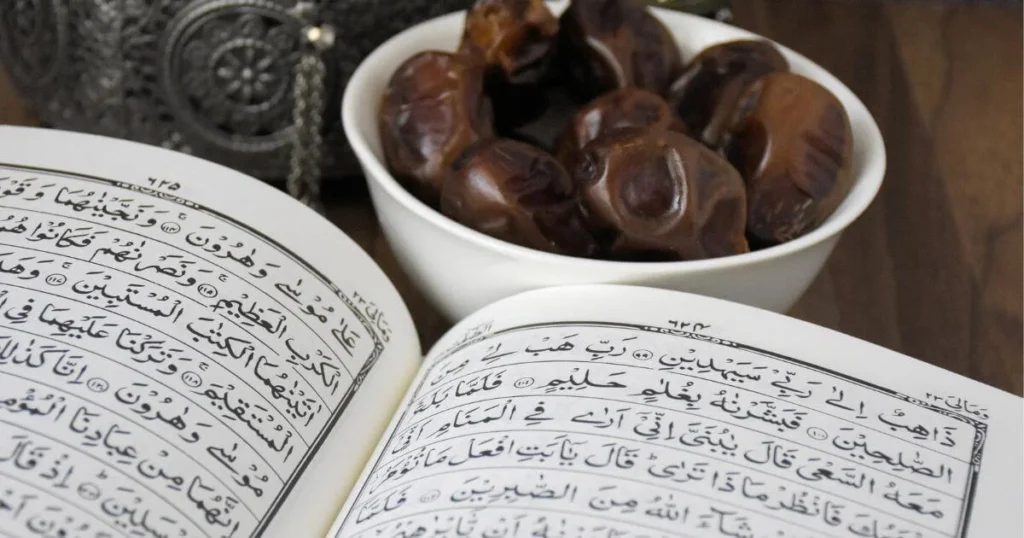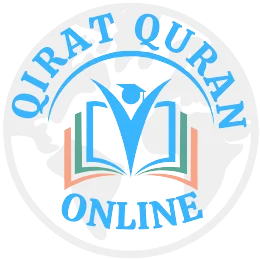
The Power of Dua for Ramadan :
Introduction
For Muslims all across the world, the ninth month of the Islamic lunar calendar, Ramadan, is a time for introspection, self-purification, and devotion. The Quran was revealed in this month, and believers consider it to be of great importance. One of the primary customs of Ramadan is fasting from sunrise to sunset while reciting specific prayers called as duas. In this comprehensive tutorial, we will cover the importance of duas throughout Ramadan as well as four key prayers: the dua for fasting, the dua for initiating the fast, the dua for breaking the fast, and the dua for Laylatul Qadr.
Dua for Ramadan in Arabic Suhoor Fasting
Fasting for the whole month of Ramadan is one of the Five Pillars of Islam and a spiritual prerequisite for all adult Muslims. Refusing food, drinks, and other essentials during the day is a test of one’s resolve, perseverance, and self-control. It’s traditional to say a particular dua first thing in the morning before setting out on this holy quest.
وَبِصَوْمِ غَدٍ نَّوَيْتُ مِنْ شَهْرِ رَمَضَانَ
Translation
I intend to keep the fast for tomorrow in the month of Ramadan
Reciting this dua demonstrates one’s devotion to fasting and should be done so with sincerity and purity of intention. It reminds us of the spiritual meaning underlying the physical practice of fasting from food and liquids.
Dua for Ramadan Fasting
Muslims eagerly await their first meal of the day as the sun sets and the hour for iftar, or breaking the fast, draws near. The fast is broken with the recitation of a particular dua before the eagerly anticipated bite.
اللَّهُمَّ اِنِّى لَكَ صُمْتُ وَبِكَ امنْتُ وَعَليْكَ تَوَكّلتُ وَ عَلى رِزْقِكَ اَفْطَرْتُ
Translation
O Allah! I fasted for You and I believe in You and I put my trust in You and I break my fast with Your sustenance
This dua is an expression of appreciation and recognition that the fast for the day was kept exclusively for Allah’s pleasure. It’s a method to ask for His pardon and blessings while breaking your fast.
Best Dua for Ramadan Opening the Fast
Breaking the fast is an exciting and joyous occasion. As the Prophet Muhammad did, it is usual to start the iftar meal with dates and water. A specific dua is said prior to the meal.
اللَّهُمَّ اِنِّى لَكَ صُمْتُ وَبِكَ امنْتُ وَعَليْكَ تَوَكّلتُ وَ عَلى رِزْقِكَ اَفْطَرْتُ
Translation
O Allah! I fasted for You and I believe in You and I put my trust in You and I break my fast with Your sustenance
Although this dua is similar to the one uttered to break the fast, it also serves as a reminder of the continuous act of devotion that is Ramadan. It strengthens the aim and goal of fasting, which is to seek and be pleased with Allah.
Dua for Ramadan Laylatul Qadr
The Night of Decree, also known as Laylatul Qadr, is one of the most important nights in the Islamic calendar. It is thought to be the night the Prophet Muhammad received his first revelation of the Quran, and it occurs during the final ten nights of Ramadan. It is a great time for worship and prayer since Allah is bestowing great benefits and mercy throughout this time.
اَللَّهُمَّ إِنَّكَ عَفْوٌ تٌحِبٌّ العَفْوَ فَأَعْفَوْ عَنِّي
Translation
Oh Allah! You are most forgiving, you love to forgive, so forgive me.
People recite this powerful dua on Laylatul Qadr to beg Allah’s forgiveness and kindness. The portals of heaven are open on the night of Laylatul Qadr, and sincere pleas are more likely to be fulfilled.
The Importance of Dua for Ramadan in English
Ramadan is not complete without duas, which are a channel of communication between a believer and their Creator. During this holy month, they allow Muslims to ask for blessings, guidance, forgiveness, and spiritual development. These are the principal arguments supporting the importance of duas throughout the month of Ramadan.
Spiritual Reflection Muslim Dua for Ramadan
Ramadan is a time for greater introspection and commitment. Duas offer a pathway for introspection and personal development, enabling people to ask Allah for direction on their path to bettering themselves.
Forgiveness and Repentance
During Ramadan, believers have the chance to ask for forgiveness for their transgressions. By making sincere du’as for forgiveness, people can accept their shortcomings and turn to Allah.
Connection with Allah
The gates of hell are closed and the gates of paradise are open throughout Ramadan. By reciting duas, Muslims can strengthen their relationship with Allah, seek His bounties, and ask for His pardon.
Protection and Guidance
Muslims look to Allah for protection and direction when they are faced with difficulties and hardships in life. Protection duas act as a barrier against adversity and uncertainty.
Gratitude and Contentment
Duas for starting and ending the fast are expressions of thankfulness and satisfaction. They serve as a reminder of people’s blessings and the significance of accepting Allah’s supplies.
Seeking Laylatul Qadr
The night of Laylatul Qadr is one of blessings and forgiveness. This evening, duas are a means to ask Allah for forgiveness and grace in the hopes that one’s prayers would be heard.
Dua for Ramadan First 10 days
رَبِّ اغْفِرْ وَارْحَمْ وَأَنْتَ خَيْرُ الرَّاحِمِينَ
Transliteration
rabbighfir warham wa anta khairur-rahimeen
Translation
O my Lord ! forgive and have mercy and thou art the best of the merciful one
(Surah Al-Mu’minun ,ayat 118)
Dua for Ramadan Second 10 days
أسْتَغْفِرُ اللهَ رَبي مِنْ كُلِ ذَنبٍ وَأتُوبُ إلَيهِ
Transliteration
Astaghfirullah rabbi min kulli zambiyon wa atoobu ilaiyh
Translation
I ask forgiveness of my sins from Allah who is my Lord and I turn towards Him.
dua for Ramadan Last 10 days
اَللَّهُمَّ أَجِرْنِي مِنَ النَّار
Transliteration
Allahuma Ajirni minan naar
Translation
O Allah, save me from the fire (Jahannam)
Conclusion
For Muslims worldwide, Ramadan is a holy and enlightening month. The act of fasting and reciting specific duas offers a significant chance for introspection, spiritual development, and devotion. Through these prayers, one can converse with God, beg for mercy, and obtain blessings. These can be made as duas for opening, breaking, fasting, or the crucial dua for Laylatul Qadr. They serve as a reminder of the true purpose of Ramadan, which is to live a life full of piety and devotion and to draw closer to Allah. Thus, when you fast and engage in acts of devotion throughout this holy month, remember the power of dua and how it can strengthen your faith and relationship with God.
FAQS:
Allahumma ahillahu alayna bil-amni wal-iman was-salaamati wal-islam. Rabbi wa rabbuka Allah. Oh Allah, make it a start full of peace and faith, safety and Islam. My lord and your lord is Allah.
O Allah, Lord of the month of Ramadan, in which You sent down the Quran and prescribed fasting for Your servants! Grant me the boon of hajj to Your sacred House during this and every year, and forgive my enormous sins; for no one can forgive them except You, O Majestic and Munificent!
Allaahumma innaka ‘afuwwun, tuhibb al-‘afwa, fa’fu ‘anni
“O Allah, You are the Most forgiving, and You love to forgive, so forgive me.”
Share on >>
